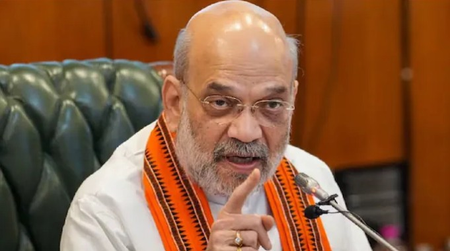New Delhi, April 25: In a significant policy shift following the Pahalgam terror attack, Union Home Minister Amit Shah convened a high-level meeting on Friday to discuss the suspension of the Indus Waters Treaty with Pakistan. The 45-minute meeting, held at Shah’s residence, included Union Jal Shakti Minister C.R. Patil and top officials, focusing on immediate and strategic measures to halt the flow of river water to Pakistan.
According to sources, the meeting evaluated three action plans—short-term, mid-term, and long-term—each aimed at ensuring that not a single drop of Indian river water reaches Pakistan. Officials were directed to initiate all feasible steps without delay, signaling a strong and uncompromising stance.
This follows a formal communication sent on Thursday by Debashree Mukherjee, Secretary of the Ministry of Jal Shakti, to her Pakistani counterpart Syed Ali Murtaza. The letter notified Pakistan of India’s decision to suspend the Indus Waters Treaty with immediate effect, invoking Article 12(3) of the 1960 agreement.
India cited Pakistan’s repeated treaty violations and its continued support for cross-border terrorism as key reasons for the suspension. The letter emphasized that security concerns and Pakistan’s refusal to engage in treaty-mandated dialogue had obstructed India’s rights to fully utilize its share of the waters.
India further stressed the need to revisit the treaty’s assumptions in light of modern challenges—population pressures, clean energy needs, and evolving geopolitical realities.
Brokered by the World Bank in 1960, the Indus Waters Treaty granted India rights over the eastern rivers (Ravi, Beas, Sutlej) and Pakistan rights over the western rivers (Indus, Jhelum, Chenab). The suspension marks an unprecedented move in India-Pakistan relations, and highlights New Delhi’s resolve to respond forcefully to terror-linked provocations with strategic and diplomatic countermeasures.












